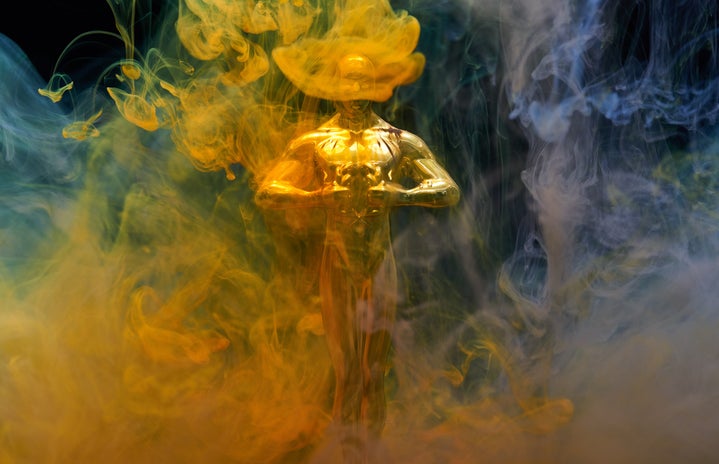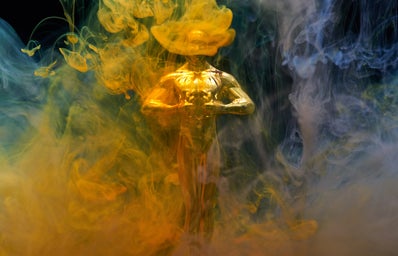By Jesse Baron
Who comes to mind when you hear the title, ‘Destroyer of Worlds’? Thanos, or Hitler… potentially Genghis Khan. Yet the self-named ‘destroyer’ was J. Robert Oppenheimer, a theoretical physicist who was instrumental in the actualisation of the first atomic bomb. The film Oppenheimer is based on Robert’s life, and it licked the plate at the 2024 Oscars with a total of 13 nominations and 7 wins – including the most coveted award of the evening, ‘Best Picture’. As a cultural moment, these accolades deserve further examination in the context of the legacy of the Hiroshima and Nagasaki bombings and the social climate of the Academy Awards.
Why did Oppenheimer win? Is it worth our attention? What does the world think?
What made Oppenheimer Oscar-worthy?
The Oscars/Academy Awards tend to celebrate films that fit into a certain framework: the movie conveys a larger meaning, is endowed with a venerable cast, and is led by an accomplished director. The film follows the physicist, J. Robert Oppenheimer, working on the Manhattan project with a team of scientists. The project takes years to complete, and eventually, it results in the first viewing of an atomic explosion, and we see the effect this creation has on the physicist’s heart. Directed by Christopher Nolan and starring the likes of Cillian Murphy, Robert Downey Junior, and Florence Pugh, Oppenheimer meets all these conditions, but its marketing campaign is also a key factor of its mainstream success – I doubt anyone active on social media last year did not come across the film and the plethora of ‘Barbenheimer’ memes and discourse. People dressed up as Barbie and Oppenheimer for Halloween, they lined the streets to the cinema and the films respectfully gained massive acclaim. The movie grossed almost 1 billion dollars worldwide and was the third highest-grossing film, while Barbie took the throne with 1.44 billion dollars. Barbie excited audiences with its bright costume design, female-centred narrative, and stellar cast, but Oppenheimer touched on our fears.
Nuclear warfare is known as the threat that loomed over the world during the Cold War and came unsettlingly close to reality, and unfortunately, that danger is still evident today. Due to technological advances and military stockpiling, nuclear power is an even more potent and extant threat than back in the 1960s. Oppenheimer reflects on the moral existentialism of creating such deadly weaponry in its representation of Robert J. Oppenheimer’s guilt and turmoil. After the bomb was activated successfully, he was awarded the Presidential citation and a Medal of Merit by the American government, and some thought he deserved the Nobel Peace Prize. They believed the creation of the atomic bomb would be big enough “To end all war.” Today we might think it odd to give a peace prize for war weapons, but might I remind you Alfred Nobel (founder of the Nobel Peace Prize) invented dynamite. Alfred Nobel invented dynamite as well as a detonator or blasting cap, which one would light a fuse to set off. The creation of dynamite, like the nuclear weapon, transformed humanity as it was used to create railroads, canals and more. It was also used as a weapon for war to hurt people, like the nuclear bomb. Oppenheimer is an important movie that makes us face the threat of nuclear warfare, and it is told dramatically, and maybe that is why it won.
What made this film important?
In considering what elevated this film above its competitors, we should examine what puts it apart from all the other nominees. In one of the scenes of Oppenheimer, we see the famous physicist present a speech to an American crowd post Hiroshima and Nagasaki. He states that it is too soon for the public to know the effects of the bomb, but he bets, “the Japanese didn’t like it”. An uproar of applause from the young American crowd is held throughout the rest of the scene but is muted at one point. The scream of a young child is the only sound we hear, cutting the silence. A strong flashing light like that of a bomb takes over the screen, a girl’s burnt face stares at us, and ash of bodies is shown falling from the ceiling, with no audible sound. This scene alone is full of spectacular sound design, imagery, and great acting from Cillian Murphy. The guilt we see underneath Oppenheimer’s joy is depicted well through this eery scene that captures an audience. This guilt turns to fear for us all as the threat of nuclear war becomes real with countries such as North Korea testing nuclear weapons. The films nominated are good, such as Barbie, but Oppenheimer reflects a darker, more existential notion: we may have created our own end. The combination of this powerful sentiment, Christopher Nolan’s expert directing, and the award-worthy performances of the cast are the powerful building blocks of what is an Academy Award Best Picture.
What does the world think?
Did everybody praise the film? The mixed feelings that the audience in Nagasaki and Hiroshima had after seeing the film are contrary. One of the moviegoers in Japan stated, “The film also depicts the atomic bomb in a way that seems to praise it, and, as a person with roots in Hiroshima, I found it difficult to watch.” Others also held qualms as they found the Barbenheimer trend to be insulting to put Barbie’s light-hearted film in the same category as Oppenheimer. Fun fact: Universal Pictures did not schedule their global release to hit Japan until 8 months after the debut it was screened. Japanese distributors were wary of screening this film, but eventually, an independent distributor decided to after the Oscars. There were trigger warning signs in some cinemas in Japan for the film, especially in Hiroshima and Nagasaki, as over 200,000 people died in these cities. Others did not appreciate the film not showing the catastrophic effects it had; a Taiwanese media critic felt “uncomfy watching yet another movie about tortured white male genius when the victims of the atrocities are glossed over by the script.” In other parts of the world, people found the film boring and too lengthy. On the other hand, it did make us aware of this American Prometheus, who gave us fire and made us question: will we burn ourselves?
Overall, Oppenheimer was a relevant film that took us by surprise. The world thought that Barbie would sweep the Oscars, but we were wrong. The film made us vulnerable to the raw issues of our time more so than the other films of 2023. Although the Japanese did not appreciate it, one cannot deny it is a catalyst for a debate we should have: Does this film really give justice to the victims of the bomb? Does Oppenheimer deserve our sympathy? Is this film a warning of what could come?
We should be worrying just like Oppenheimer, who feared he destroyed the world and became death itself.


